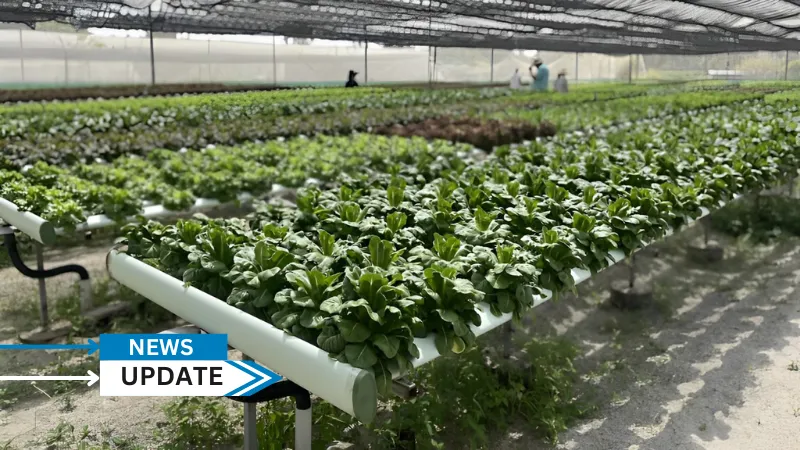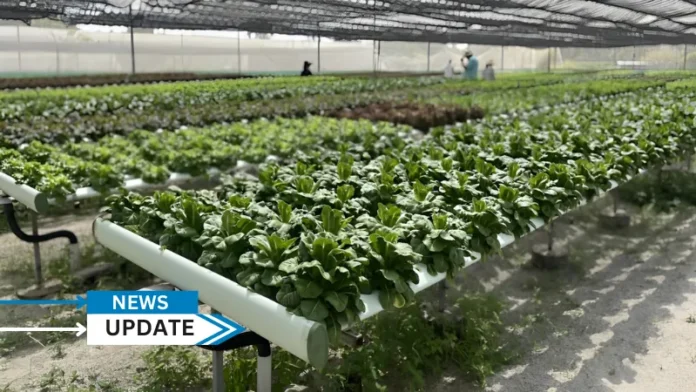
The Asian Development Bank (ADB) has approved a $21.95 million financing package to build Maldives’ capacity to combat the effects of climate change and ensure sustainability of its food systems.
Read also – Alipay+ Mobile Payment Partner Users Can Now Scan And Pay With Interoperable NEPALPAY
The financing package comprises a $4 million concessional loan and a $17.95 million grant from the Asian Development Fund, which provides grants to ADB’s poorest and most vulnerable developing member countries.
Read also – Funding Wrap of The Week | Asian Startups Funding Roundup | 3 November– 8 November
“Majority of Maldives’ islands and atolls lie less than one meter above sea level making them highly vulnerable to climate change. Threats such as coastal erosion, sea level rise, and increasing frequency of cyclones pose a major concern for short- and long-term food security of the population. Increasing extreme weather events cause food supply chain disruptions for the import-dependent country,” said ADB Principal Natural Resources and Agriculture Economist Michiko Katagami. “This project will introduce a holistic adaptation investment approach, combining innovative infrastructure solutions with nature-based initiatives and urban farming to build lasting resilience.”
The Enhancing Climate Resilience and Food Security Project will strengthen the country’s resilience to disasters and climate change by upgrading the early warning systems in Addu City and Malé. These measures will enable the Maldives Meteorological Service to establish a real-time weather monitoring and early warning system. It will conduct community training and awareness-raising on climate change adaptation measures and disaster preparedness and response.
The project will help Kulhudhuffushi Island, the most populous island in the northern region, improve its flood protection and management by constructing stormwater drainage and filtration systems, restore mangrove areas, and introduce other nature-based solutions. Offshore and nearshore infrastructures such as artificial reefs, berms, and groynes will be constructed for coastal protection and sand retention.
To help achieve long-term food security, ADB will introduce climate-smart urban farming technologies and practices in Haa Dhaalu and Addu atolls. It will construct a multipurpose facility for the Hanimaadhoo Agriculture Center (HAC) to strengthen its training and research services. The enhanced training, agriculture extension, and business advisory services to farmers, cooperatives, civil society organizations, and women and young agribusiness entrepreneurs will support the expansion of local food supply and creation of income and employment opportunities. The project will help these beneficiaries to obtain matching grants to develop and expand their businesses and enterprises.
Project financing will be supplemented by a $3 million grant from the Japan Fund for Prosperous and Resilient Asia and the Pacific, financed by the Government of Japan, to support HAC operations and the promotion of new agri-food technologies and practices. Another $1 million grant from the Ocean Resilience and Coastal Adaptation Trust Fund (ORCATF) under the Ocean Resilience and Climate Adaptation Financing Partnership Facility will finance nature-based solutions for flood mitigation and coastal protection. An additional $1.5 million technical assistance grant from ADB’s Technical Assistance Special Fund and ORCATF will be provided for capacity building and research.
About ADB
The Asian Development Bank (ADB) is committed to achieving a prosperous, inclusive, resilient, and sustainable Asia and the Pacific, while sustaining its efforts to eradicate extreme poverty. It assists its members and partners by providing loans, technical assistance, grants, and equity investments to promote social and economic development. Established in 1966, it is owned by 69 members—49 from the region.





